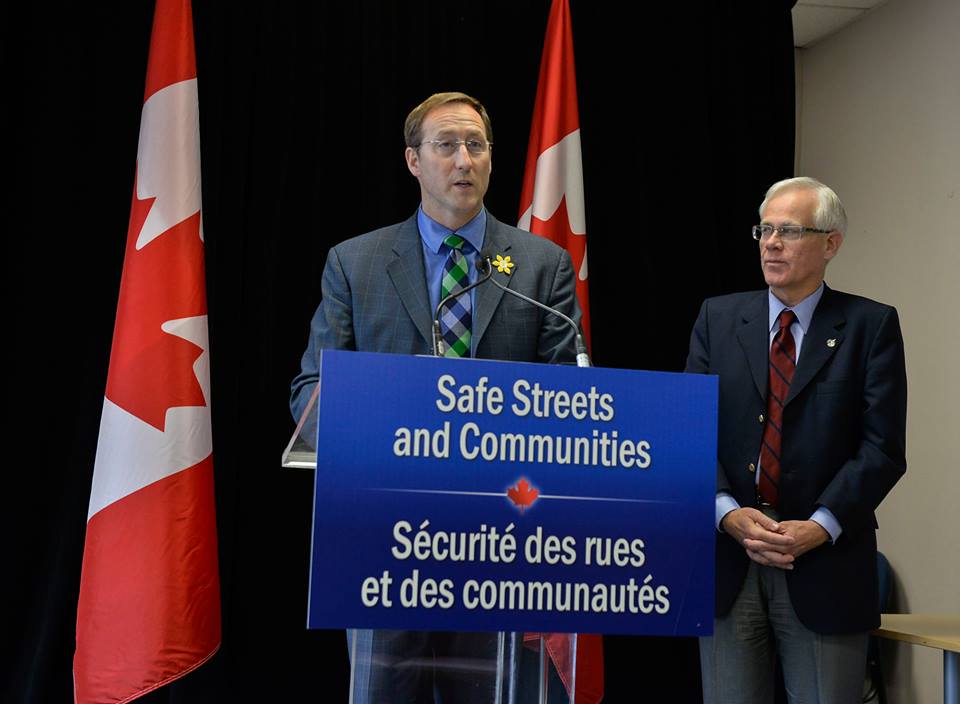Canada News
Supreme Court decision a ‘sensitive issue,’ government will review: MacKay

Minister of Justice and Attorney General of Canada Peter MacKay. Photo courtesy of MacKay’s official Facebook page.
OTTAWA — Nine years to the day after he was sworn in as prime minister and with an election on the horizon, Stephen Harper received one heck of an anniversary present Friday from the Supreme Court of Canada.
In striking down the country’s ban on doctor-assisted suicide, the high court gave Parliament 12 months to come up with legislation that recognizes the right of clearly consenting adults who are enduring intolerable suffering, physical or mental, to seek medical help in ending their lives.
That leaves Harper’s Conservative government — and its provincial counterparts — to wrestle with the polarizing question of whether Canada needs a law that allows doctors to help people end their lives.
Justice Minister Peter MacKay surprised no one Friday when he said the government would use the time available to review the decision. But there’s another, potentially more urgent deadline: the federal election, scheduled for October.
“That is a consideration, but not the primary consideration,” MacKay said.
“The most important part of what Parliament will do is how we protect all Canadians’ rights and interests in this particular case.”
Many of those with an interest in this issue make up the majority of voters — those over the age of 45. Baby boomers in particular are confronting end-of-life-care decisions for their own parents, to say nothing about wondering what lies ahead for them.
Politically, doctor-assisted death would be an uncomfortable campaign issue for all parties — but the Conservatives face a particular challenge.
Many religious groups and other conservatives who make up the Conservative party base are strongly opposed to any kind of right-to-die legislation. The more left-leaning voters in urban and suburban ridings — vital electoral battlegrounds for the Tories — are more supportive.
Within the Conservative caucus itself, there’s little consensus.
The only way to keep it off the campaign trail would be to pass a law pre-emptively, said Conservative MP Stephen Fletcher, who supports lifting the ban and has introduced private member’s bills of his own on the subject.
“Parliamentarians would rather have their eyes scratched out than deal with this type of issue,” said Fletcher, who has been quadriplegic since a car accident in 1996.
“But that is not a reason not to deal with the issue. This is an existential moral issue that affects everyone that is alive today and everyone who will live in Canada in the future.”
At least six private member’s bills aimed at reforming right-to-die legislation have been defeated by parliamentarians since 1993 — the most recent in April 2010.
Conservative MP Stephen Woodworth called those votes courageous.
“It would be inaccurate to say that Parliament in any way has shirked its duty on this issue,” Woodworth said.
“It’s just that the Supreme Court of Canada doesn’t agree with the parliamentary decision. And in my view, that’s a serious question — you know, to what degree should Parliament be the final authority on social issues?”
Despite MacKay being in the House of Commons for question period Friday, the opposition didn’t ask him about the ruling, highlighting the political sensitivity.
The New Democrats have no official party position on physician-assisted death, said NDP justice critic Francoise Boivin. Her party’s caucus will discuss the ruling, she added.
“Medically assisted suicide is a difficult issue that engenders strong feelings and touches many, many Canadians in a very personal way,” Boivin said.
Public opinion polls in general suggest a large majority of Canadians support some sort of medical assistance for those seeking to end their lives in particular circumstances.
“I sense that if any party were to try and politicize this in an election year, Canadians will judge them very harshly,” Liberal Leader Justin Trudeau said Friday in Calgary.
His party passed a motion in support of decriminalizing medically assisted death during their last policy convention.
A similar struggle faced former Progressive Conservative Prime Minister Brian Mulroney, when the top court struck down laws criminalizing abortion in 1988.
Mulroney’s cabinet was bitterly divided on ideological grounds. The law they ultimately introduced was defeated in the Senate, leaving Canada without abortion legislation.
The federal government could go the same route, leaving the issue alone.
If they did, the rules on physician-assisted death would be like other medical procedures that are regulated now, said Grace Pastine, the lead lawyer for the families who brought the case before the Supreme Court.
The important thing to remember is that it’s not just an arcane legal or political debate, she said.
“This is a case about real people, with serious illnesses who through a change in the law can find some peace and comfort in knowing that they have a choice.”





















